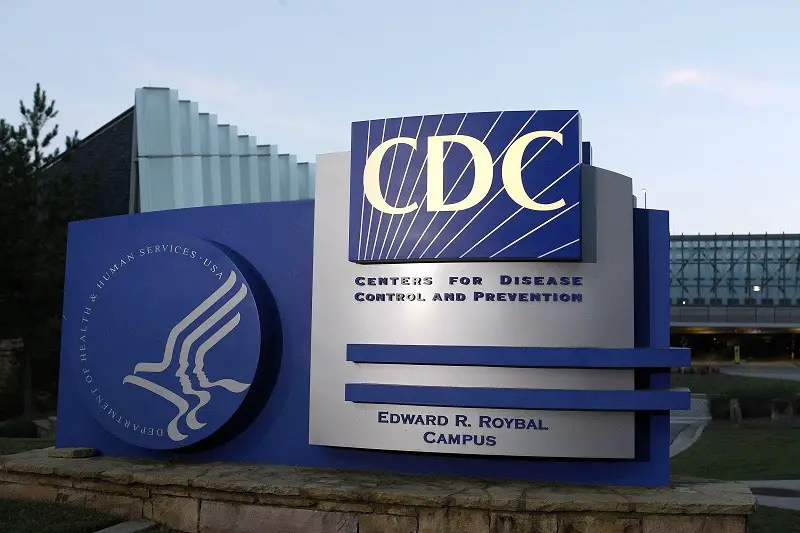Contributing writer for Wake Up World
On the face of it, expanding powers to screen, test and quarantine people traveling within and without the US during a crisis, like the Ebola outbreak in 2014, sounds like a good idea. After all, limiting the scope and reach of dangerous infectious disease such as MERS, SARS or Yellow Fever is in the public interest for health and safety. I think we would also agree it’s important the Centers for Disease Control (CDC) be allowed to act quickly and decisively in the event of an outbreak in order to contain it.
But some feel the new rule adopted by the agency — which greatly broadens its power and has bypassed Congressional oversight — is overstepping its authority and crosses a line that endangers personal liberties and rights.
Medical Ethics and Quarantine Authority
On President Obama’s last day in office, the CDC significantly expanded it’s own authority to “apprehend, isolate and quarantine individuals suspected of having any of nine diseases on the US quarantine list” — like severe acute respiratory syndrome (SARS), Ebola, plague, cholera, yellow fever and smallpox.
While the old rule already authorized the CDC to detain people suspected of carrying infectious diseases such as those above, it was limited primarily to people entering the country or crossing state lines. Moreover, the CDC almost always deferred to state and local health officials.
Under the new final rule, the CDC is able to detain individuals anywhere in the country without first receiving approval on a state and local level. Additionally, the criteria for an “ill person” has been expanded, where the agency can detain a much wider group of people. Common and vague symptoms like fever, headache and cramps all fall under this new yardstick to be used for measuring risk to public health. Airline and ship crew will now be required to report these and other symptoms to the CDC. One of the most disturbing aspects of the new rule is that the agency can detain you for up to 72 hours at their discretion, while the case is reviewed by the CDC itself instead of a neutral third party, before deciding on quarantine measures.
“Deftly trying to skirt around Congress — again — from dissecting the proposed rule changes, debating them, voting on them, and making some or all of them into law, such a flagrant power grab by the Centers of Disease Control (CDC) was designed to shrink the timeline for public discourse, while giving the appearance that the changes are minor, just simple adjustments from existing law on the agency’s limited authority in the event of a communicable disease emergency.” [source]
The changes are anything but “simple adjustments” — what we are seeing here is a significant expansion in authority of a governmental agency that has a questionable history in protecting public health. A few examples of the CDC’s ineptitude can be seen here and here.
“Published in mid August [2016] and buried again during the noise of the presidential election three weeks before Americans vote, the [Notice of Proposed Rulemaking] NPRM … elevate[s] the CDC’s power to the Fourth military-intelligence agency in the United States, right behind the NSA, CIA, and the Department of Defense (DoD).
Such extraordinary powers… lead to a draconian abuse of U.S. citizens’ lives, livelihood, privacy, freedom, liberty, health, wellbeing, among other countless, unintended consequences and lesser indignities.” [source]
We’ve already witnessed this kind of overreach with the Ebola quarantines in the United States a few years ago. The American Civil Liberties Union explains in Fear, Politics, and Ebola: How Quarantines Hurt the Fight Against Ebola and Violate the Constitution:
“Because the Ebola quarantines of 2014–2015 were not medically necessary, they violated the U.S. Constitution. A quarantine is a form of imprisonment and therefore a very significant cant incursion on an individual’s freedom. Under the Constitution, quarantines are permitted only when the state has a compelling interest in imposing one and when such interventions are the least restrictive measures available to prevent the spread of disease. Because the Ebola quarantines were not medically necessary, they did not satisfy those criteria. Furthermore, quarantined individuals are legally entitled to due process of law, including a timely hearing before a judge or other neutral arbiter. Few of the states that imposed quarantines did this. States are also required to quarantine under humane conditions, and not all states did so. … The Ebola quarantines and other movement restrictions put in place throughout the nation beginning in late 2014 were motivated by fear and by politics, not by medical science.”
Take the case of two public-health workers and a family of six Liberian immigrants who were quarantined in Connecticut during 2014. They were confined to their homes for weeks — even though none had been exposed to Ebola or were a threat to public health. These individuals weren’t informed of their legal rights by the state or provided food and other basic necessities. Today, the shame and stigma of being a ‘threat’ is still a reality for Liberian Americans in the region.
Many may feel these measures — and the ones recently adopted by the CDC — are completely justified in the name of public safety. But here’s the thing: many times what we think will help in an outbreak actually doesn’t work. The Ebola quarantines are a perfect example.
“With Ebola,” says Jennifer Nuzzo, an epidemiologist at the UPMC for Health and Security, screening isn’t effective because “you’re not transmissible until you’re really sick, and then you’re not moving.” [source]
We saw this with Thomas Duncan, the man who died from Ebola in Dallas, Texas. He didn’t spread the virus to a single person in his family or the community. The disease was only transmitted to the nurses caring for him — once it was obvious he was extremely sick with Ebola. It’s at this point that proper protocol in hospitals for staff is crucial for preventing the spread of the disease, instead of pointless quarantine of those who are not showing symptoms.
Why not be on the safe side and quarantine anyway? Because misinformation, distrust and confusion spread disease. If people think they will be quarantined unfairly, cases will go underground, making it much more difficult to treat and contain infectious disease. Instead, far less restrictive measures — such as daily phone calls with health workers — have been proven to be very effective.
James Hodge Jr, a professor of public-health law and ethics at Arizona State University, and Jennifer Nuzzo, among others, believe that the agency risks sacrificing personal rights and liberties in favor of expediency.
“The rule allows the CDC to move on somebody based on some belief that they might pose some amorphous risk to others,” says Hodge. “That’s not a standard that survives constitutional scrutiny.”
Article sources:
- www.theatlantic.com/science/archive/2016/12/cdc-quarantine-rule-violate-civil-liberties/511823/
- www.online.liebertpub.com/doi/full/10.1089/hs.2016.0114
- www.anh-usa.org/federal-quarantine-powers-quietly-expanded-without-congressional-approval/
- www.greenmedinfo.com/blog/militarization-cdc-zika-money-quarantine-power
- www.aclu.org/sites/default/files/field_document/aclu-ebolareport.pdf [PDF]
- www.cdc.gov/quarantine/aboutlawsregulationsquarantineisolation.html
Recommended articles by Carolanne Wright:
- Psychiatric Industry Corruption: 6-Year-Old Boy Committed to a Psych Ward for Throwing a Temper Tantrum at School
- Renowned Harvard Psychologist Says ADHD is Largely a Fraud
- Plastic-Eating Mushroom Discovered in the Amazon Rainforest — A Solution for Our Trash Saturated World?
- Over 100 Scientific Studies Agree: Cannabis Annihilates Cancer
- Why Every Parent Should Consider Unschooling
- First U.S. City Produces More Electricity Than It Uses — With 100% Renewable Technology
- If You Care About Animals and the Earth, Here’s Why You Need to Boycott Palm Oil Immediately
- Brain Waves and Binaural Beats: A Gateway to Higher Consciousness, Enhanced Learning and Brain Function
- 85% of Tampons, Pads and Other Feminine Care Products Contaminated with Monsanto’s Cancer-Causing Glyphosate
- Latest Research on CBD Oil Offers New Hope for Healing Leaky Gut Syndrome and Autoimmune Disorders
- Scientific Breakthrough: Alzheimer’s Ultrasound Therapy Fully Restores Memory Function in Mice
About the author:
I’m Carolanne — a writer, chef, traveler and enthusiastic advocate for sustainability, organics and joyful living. It’s good to have you here. If you would like to learn more, connect with me at Thrive-Living.net or visit Twitter.com/Thrive_Living.
If you've ever found value in our articles, we'd greatly appreciate your support by purchasing Mindful Meditation Techniques for Kids - A Practical Guide for Adults to Empower Kids with the Gift of Inner Peace and Resilience for Life.
In the spirit of mindfulness, we encourage you to choose the paperback version. Delve into its pages away from screen glare and notifications, allowing yourself to fully immerse in the transformative practices within. The physical book enriches the learning process and serves as a tangible commitment to mindfulness, easily shared among family and friends.
Over the past few years, Wake Up World has faced significant online censorship, impacting our financial ability to stay online. Instead of soliciting donations, we're exploring win-win solutions with our readers to remain financially viable. Moving into book publishing, we hope to secure ongoing funds to continue our mission. With over 8,500 articles published in the past 13 years, we are committed to keeping our content free and accessible to everyone, without resorting to a paywall.








